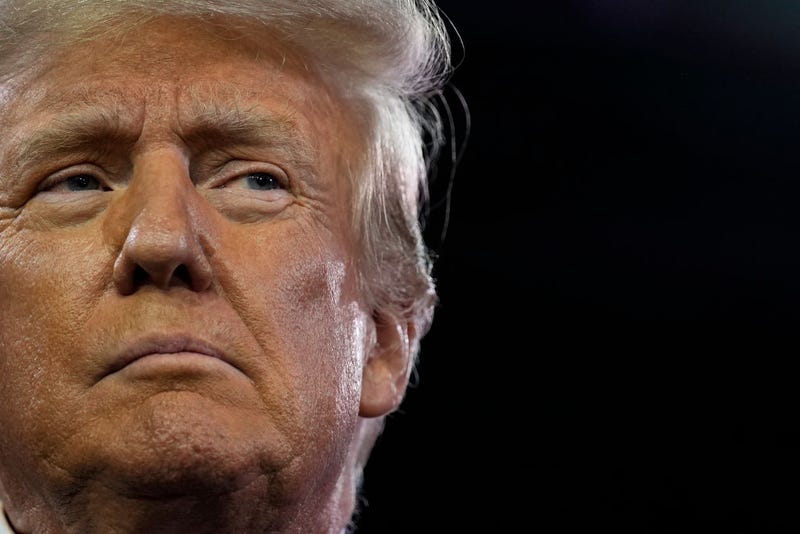
“His arguments are without merit,” said Judge Lewis Kaplan of the United States District Court for the Southern District of New York in a Thursday ruling regarding former President Donald Trump, 76.
Arguments included a motion for summary judgement to dismiss damages sought by columnist E. Jean Carroll, 79, for defamation included one that claimed Trump is “entitled to absolute presidential immunity.”
According to Congress, in “its 1867 decision Mississippi v. Johnson, the Supreme Court established that the President is largely beyond the reach of the judiciary by holding that it could not direct President Andrew Johnson in how he exercised his purely executive and political powers.” However, “the Court made clear that Johnson does not stand for the proposition that the President is immune from judicial process,” in later decisions.
Kaplan said in the 46-page ruling issued this week that it covered Carroll’s defamation claim regarding comments Trump made in 2019, shortly after she publicly accused him of sexual assault.
“In those statements, Mr. Trump denied Ms. Carroll’s accusation, stated that he ‘has no idea who this woman is,’ and suggested that she fabricated her accusation for ulterior and improper purposes,” the judge explained.
Trump took to Twitter to post the first of the statements just a little more than two hours after the rape accusation became public. He was still president at the time.
“Regarding the ‘story’ by E. Jean Carroll, claiming she once encountered me at Bergdorf Goodman 23 years ago. I’ve never met this person in my life. She is trying to sell a new book – that should indicate her motivation. It should be sold in the fiction section,” said the first part of the statement. Two more followed.
Kaplan said that Trump’s presidential immunity “argument relies on the theory that absolute presidential immunity is non-waivable because it is different from absolute immunity available to judges and prosecutors – which decidedly is waivable – due to what he claims, mistakenly, is ‘its unique rooting in the separation of powers doctrine.’”
However, Kaplan said “absolute presidential immunity is no such anomaly,” and that “Trump’s argument that absolute presidential immunity is jurisdictional runs afoul of many of the same principles on which the immunity is based.”
He also took issue with the fact that Trump raised the absolute immunity defense at this point in the legal proceedings.
Another case regarding the actual sexual assault and another statement Trump made on social media last year was tried this spring. In that statement, he called her claims a “hoax” and “a con job.”
A jury unanimously found Trump guilty of sexual assault as well as defamation in regards to his 2022 statement. It awarded her $5 million in compensatory and punitive damages, including $2.02 million for her sexual assault claim and $2.98 million for her defamation claim.
“I HAVE ABSOLUTELY NO IDEA WHO THIS WOMAN IS. THIS VERDICT IS A DISGRACE - A CONTINUATION OF THE GREATEST WITCH HUNT OF ALL TIME!” said Trump in a message posted to his Truth Social account after the verdict was announced.
In addition to the presidential immunity claim, Trump’s legal team argued that his 2019 “statements were not defamatory per se and Ms. Carroll cannot establish special damages,” that “the majority of Mr. Trump’s statements were nonactionable opinion,” and that “Ms. Carroll consented to Mr. Trump’s allegedly defamatory statements.”
All were dismissed by Kaplan.
“In all the circumstances, Mr. Trump has failed to establish that there is not a genuine issue of material fact as to whether the prerequisites to a punitive damages award in this case have been satisfied,” he said.


